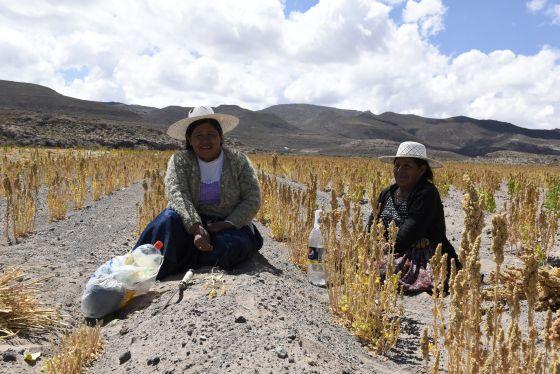Feminisation, agricultural transition and rural employment (FATE)

Does commercial agriculture push vulnerable farmers into precarious jobs? Does employment in the rural sector empower women? What are the prospects of rural workers to secure their livelihoods and to improve the future of their children? – Against the background of the dramatic transformations of rural spaces, the FATE team assesses the potential of rural labour markets and addresses the risks rural men and women face as they engage in wage employment.
About the project
Background
Agriculture remains a primary engine of rural development and growth, building resilience and livelihoods and providing a critical route out of poverty. Nevertheless, agriculture in the global South is also viewed as underperforming. Governments and development agencies have embraced demands for more capital-intensive commercial agriculture that can generate higher returns and promotes employment for the rural population. Non-traditional agricultural exports such as delicate spices (ginger, cardamom) or nutritious grains (quinoa) have been a response to these demands, creating wage labour and stimulating high levels of – notably – female employment in rural areas.
Objectives
The developmental impacts of an increased commercialisation of agriculture are the subject of FATE. Working in four different countries – Rwanda, Nepal, Laos and Bolivia – the FATE team scrutinizes the rural labour markets emerging as a result of the raising demand for high-value agricultural products. The project analyses the premises of the supposed integration of rural women and men into export-led agriculture, highlighting how the gains and risks are shared within and between households. The FATE team assesses the conditions under which the shift from subsistence orientation towards wage reliance enhances people's choices, resulting in positive effects on the well-being of households. In contrast, we also find that commercial farming adds pressure on families as they opt out of subsistence and are being pushed towards capital investment. Instead of increased choices and well-being achievements – the promises of development – farmers bear the risk of losing their land, which drives their families from vulerability into precarious jobs.
Relevance
The research will contribute to policy frameworks which aim at creating jobs but even more so prospects – namely for the poorer portions of developing societies to actually escape from poverty. Transdisciplinary in nature, this project will provide knowledge to inform stakeholders who aim at building socially just and environmentally sensitive development pathways in the context of agricultural transition and rural employment.
Highlights and selected results
The creation of employment in the agricultural sector bears a great potential for the empowerment of the rural population. However, the opportunities are distributed in a very uneven way. People with sizeable land and men tend to be much better equipped to convert the new economic opportunities into assets and personal well-being achievements. Our work thus echoes the predication by Edwards: "…growth is good for the poor, but it is much better for the rich (2006, 1682, orig. emphasis)". While the transformative power of globalization and economic growth is indeed remarkable, so is the perseverance of existing structures in rural areas of the global South. One of the strategies to overcome the unequal distribution of the gains of commercialization is to strengthen the bargaining power of rural men and women, especially those who find themselves at the lower end of the income scale.
Geographic scope
- Bolivia
- Laos
- Nepal
- Rwanda
Links to project website and P3
- Link to project website
- Links to project in research phase
) and in research phase
) SNSF research database P3
